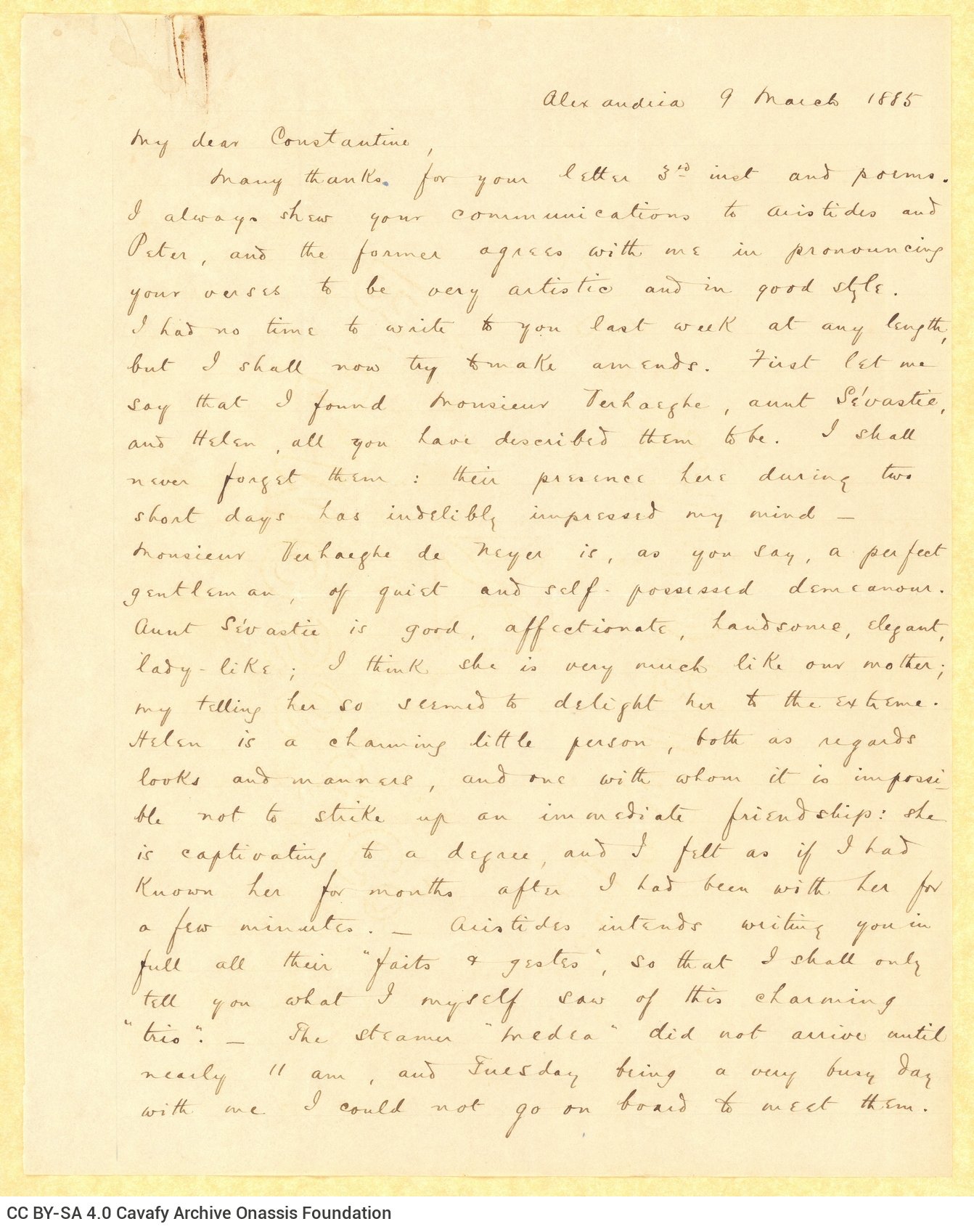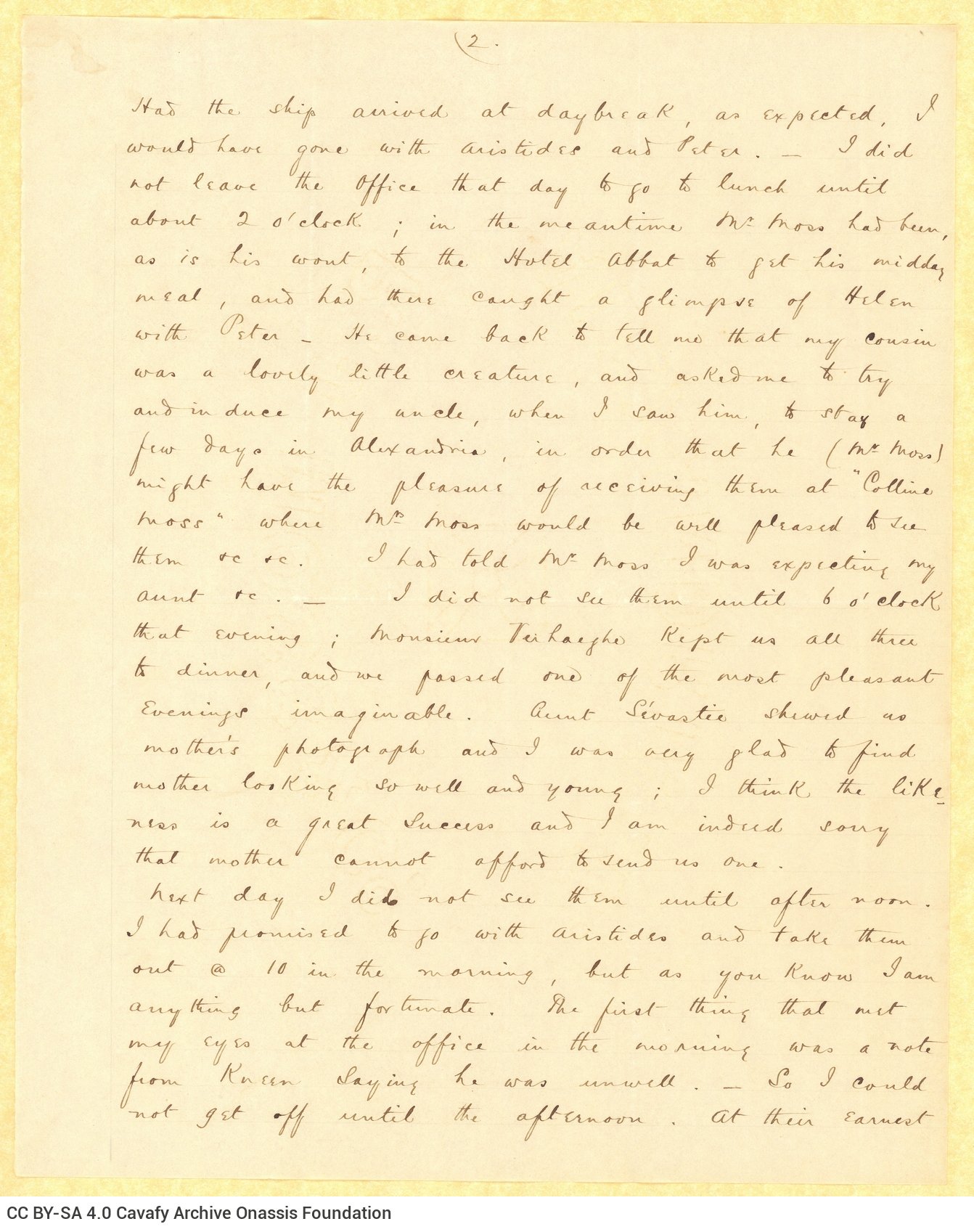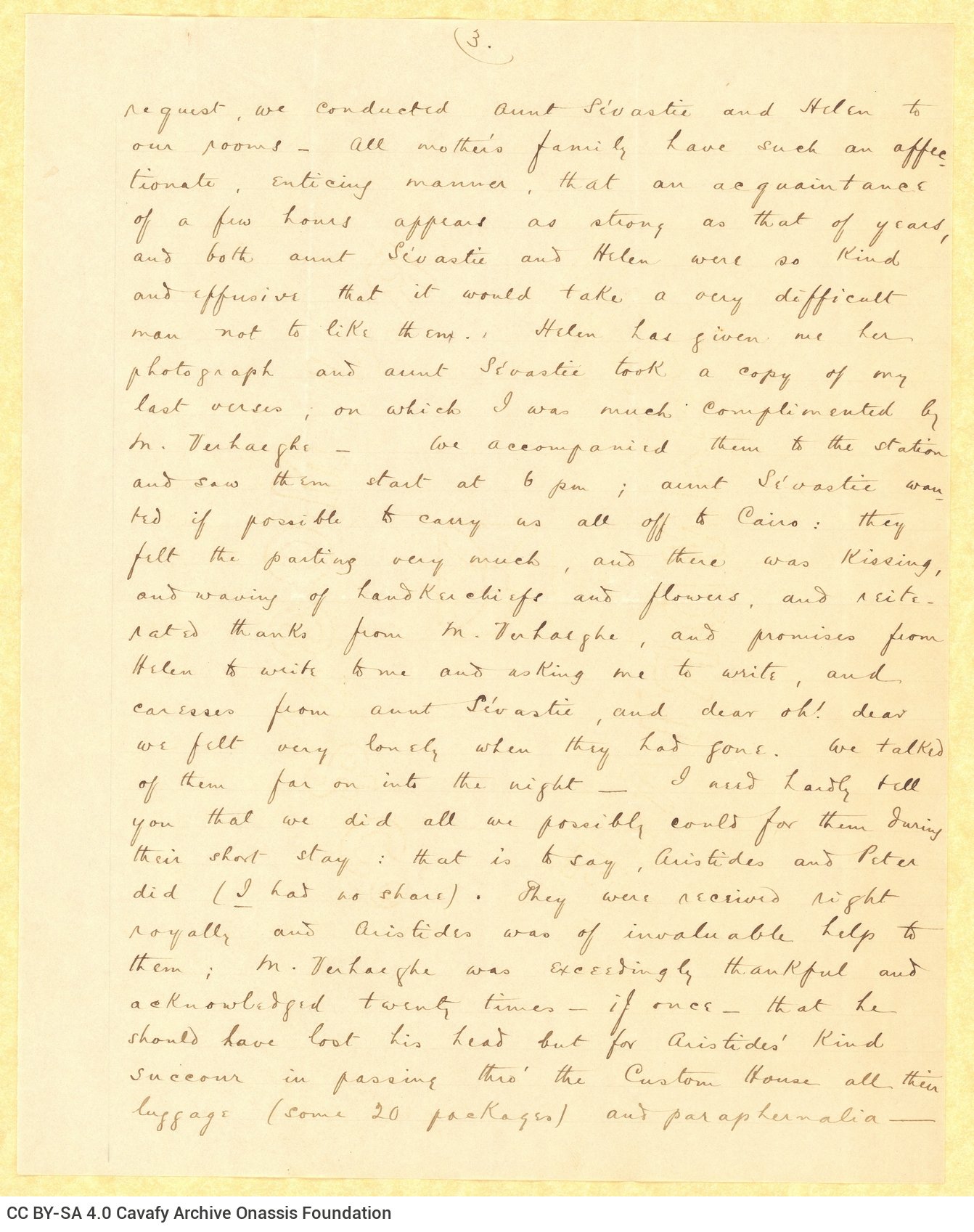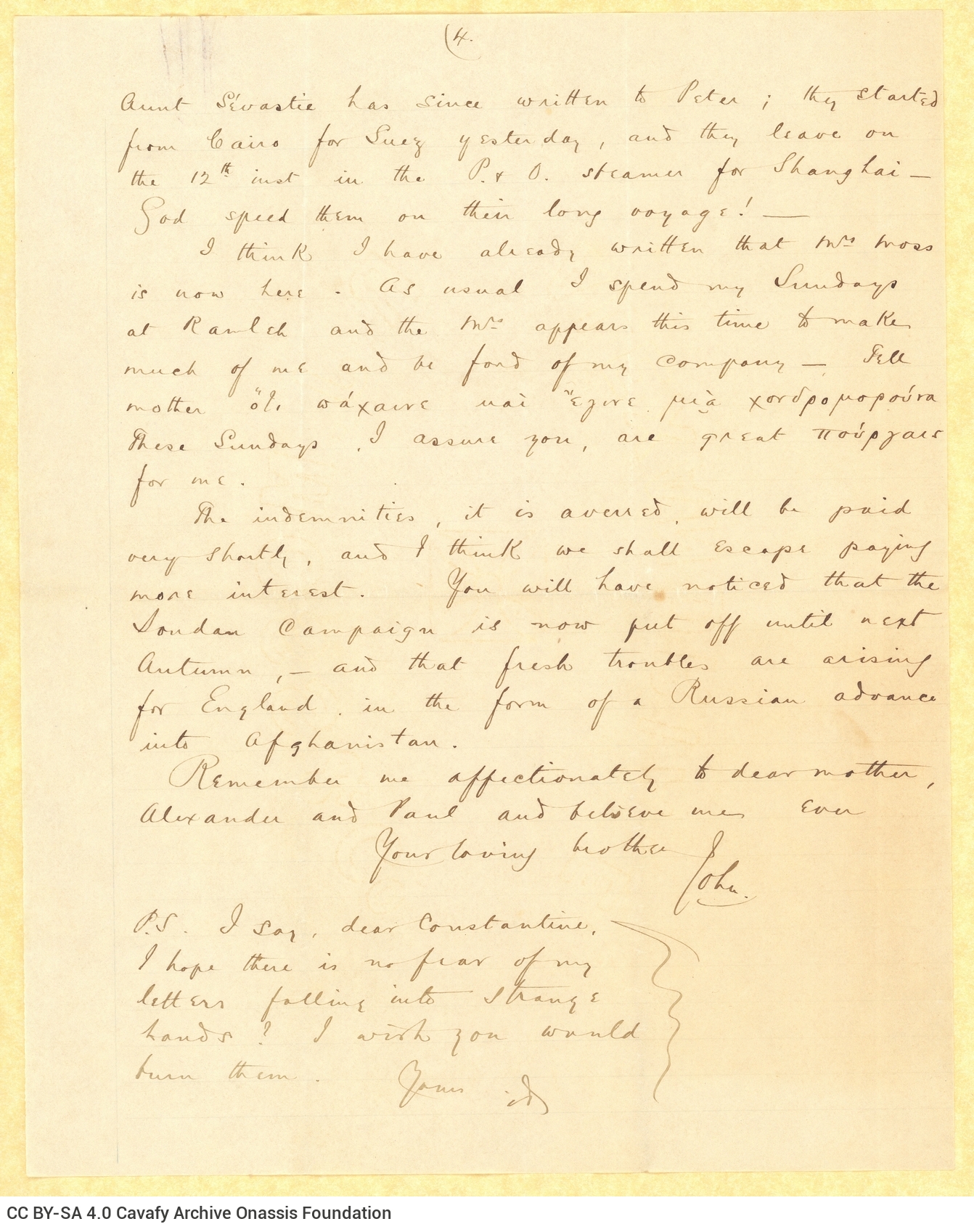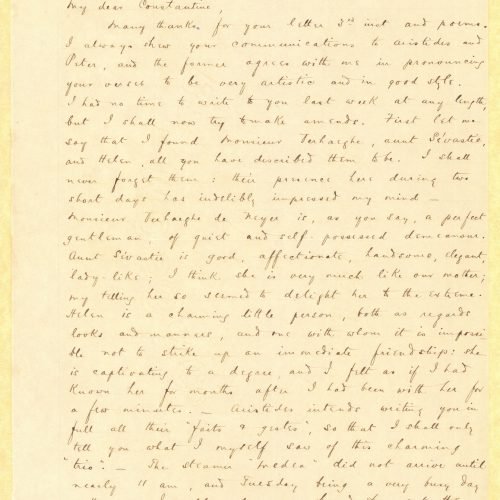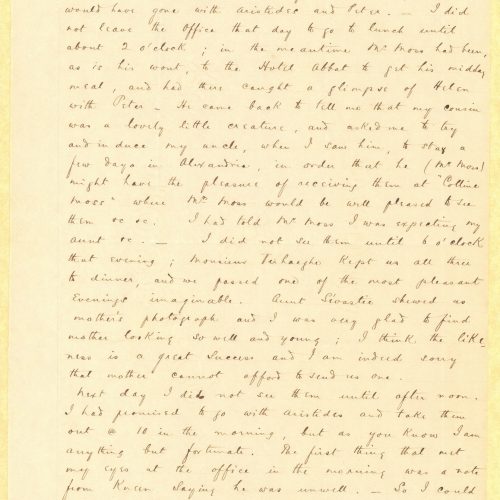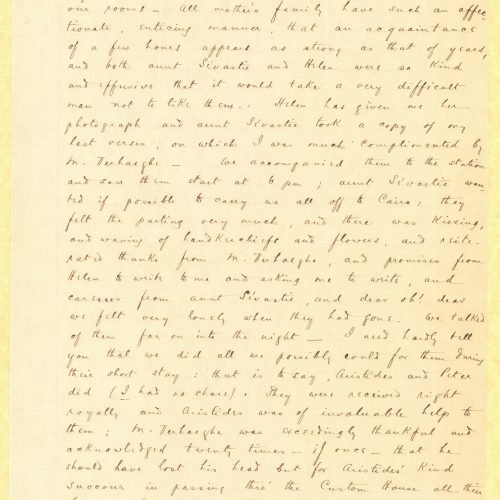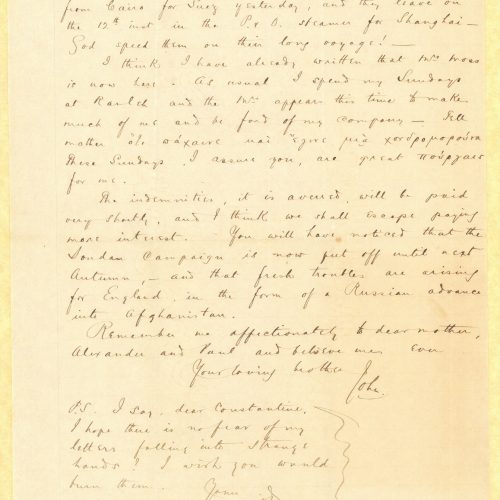υπογράμμιση
υπογράμμιση
πράσινη γραμματοσειρά
κίτρινη γραμματοσειρά
κόκκινη γραμματοσειρά
DIGITAL OBJECT DESCRIPTION
IDENTITY AREA
27 x 22 cm
CONTEXT AREA
CONTENT AND STRUCTURE AREA
Handwritten letter by John Cavafy to C. P. Cavafy on the recto of four sheets. Pages 2 to 4 are numbered. Detailed description of the visit to Alexandria of their mother’s sister, Sévastie, with her family, on their way to Shanghai. Reference to John’s everyday routine and to family friends. Interpolated phrases in Greek. (Alexandria)
CONDITIONS OF ACCESS AND USE AREA
Mainly English
Writing in ink. Watermark: R. J. Moss & Co., Alexandria. Physical item wear: oxidations.
NOTES AREA
The transcription and editing of the letters of John Constantine Cavafy addressed to C. P. Cavafy was first carried out by Katerina Ghika; said transcriptions were subsequently uploaded to the official website of the Cavafy Archive.
In the beginning of the letter, it is noted that C. P. Cavafy sent poems of his to John Cavafy. No titles are mentioned.
ACCESS POINTS
Cavafy, John Constantine. “Letter by John Cavafy to C. P. Cavafy”. Letter, 09.03.1885. GR-OF CA CA-SF02-S01-SS02-F20-SF001-0061 (436), Onassis Foundation C. P. Cavafy Fonds. From The Digital Collection of the Cavafy Archive, edited by Onassis Foundation, Athens, last modified 01.10.2025. https://doi.org/10.26256/CA-SF02-S01-SS02-F20-SF001-0061.
